Australian pennies dated 1953 were minted in Melbourne and Perth. Whereas all
the Perth pennies were identical, there were two varieties minted in Melbourne,
one of which is very scarce.
Statistics
Designation
|
P53M.6D
|
P53M.6H
|
P53P.7G
|
Mint
|
Melbourne
|
Melbourne
|
Perth
|
Mintage
|
6,933,600
|
|
6,202,800
|
The master tools for the H reverse were prepared at the Royal Mint in London
in the middle of 1953. Tools were sent to both Melbourne and Perth but were only
ever used in Melbourne.
The number of coins struck at Melbourne using the H reverse is not known but
judging by the rarity of the coin I suspect that just a single working die of that
design was made and used, perhaps as a test, with the bulk of the minting being
done with working dies in stock pressed from the earlier reverse. It would be interesting
to check this conjecture against the mint records for the period.
Reverses
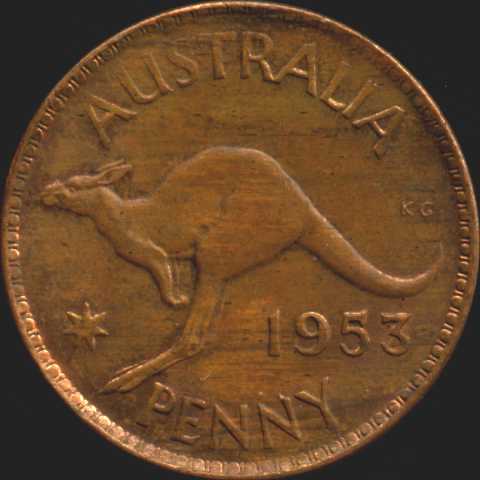
|
Melbourne issue, P53M.6D
This is by far the more common of the two Melbourne issues. The reverse was struck
using dies made from the 1938 master tools.
|
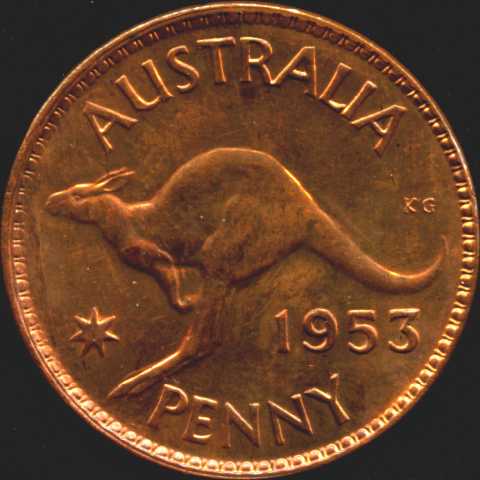
|
Melbourne issue, P53M.6H
This is the rarer of the Melbourne varieties and was struck using a new H reverse
which was subsequently used for the Melbourne issues of 1955 and 1956. It is easily
distinguished from the D reverse by the shape of the 5 in the date. Variety catalogues
frequently list this variety as "long 5, different 3" but the shape of
the 5 is really just a consequence of the preparation of a new reverse die.
I found one of these amongst 61 Melbourne pennies dated 1953 but I suspect I
was fairly lucky.
|
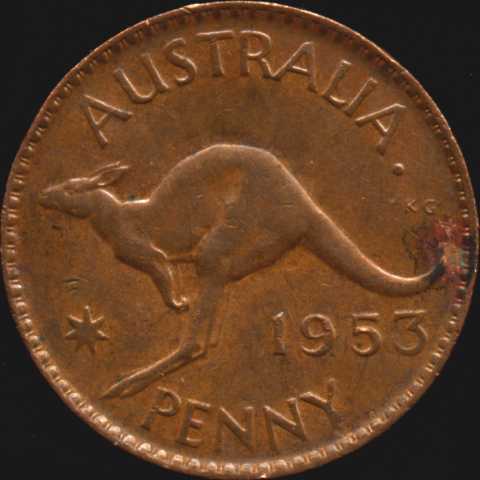
|
Perth issue, P53P.7G
Both the obverse and the reverse dies were different from those used to strike
the Melbourne pennies.
|
Close-up views of the date
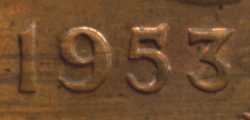
|
P53M.6D
Heavy serif on the 5. Smaller fish-tail serif on the 3.
|
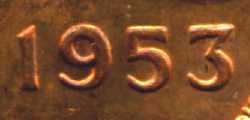
|
P53M.6H
5 is more upright and serif barely noticeable. 3 has a thin wedge serif.
|
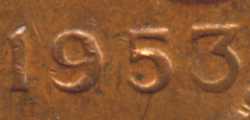
|
P53P.7G
Perth issue. 5 and 3 are different again. 5 has a thinner vertical stroke and
the 3 is generally larger. Date is wider overall.
|
[ Home Page | Australian
coins | Pennies ]
Visitors
Most recent revision: 25th June 2000
Copyright ©2000, Triton Technologies International Ltd, all rights reserved.





